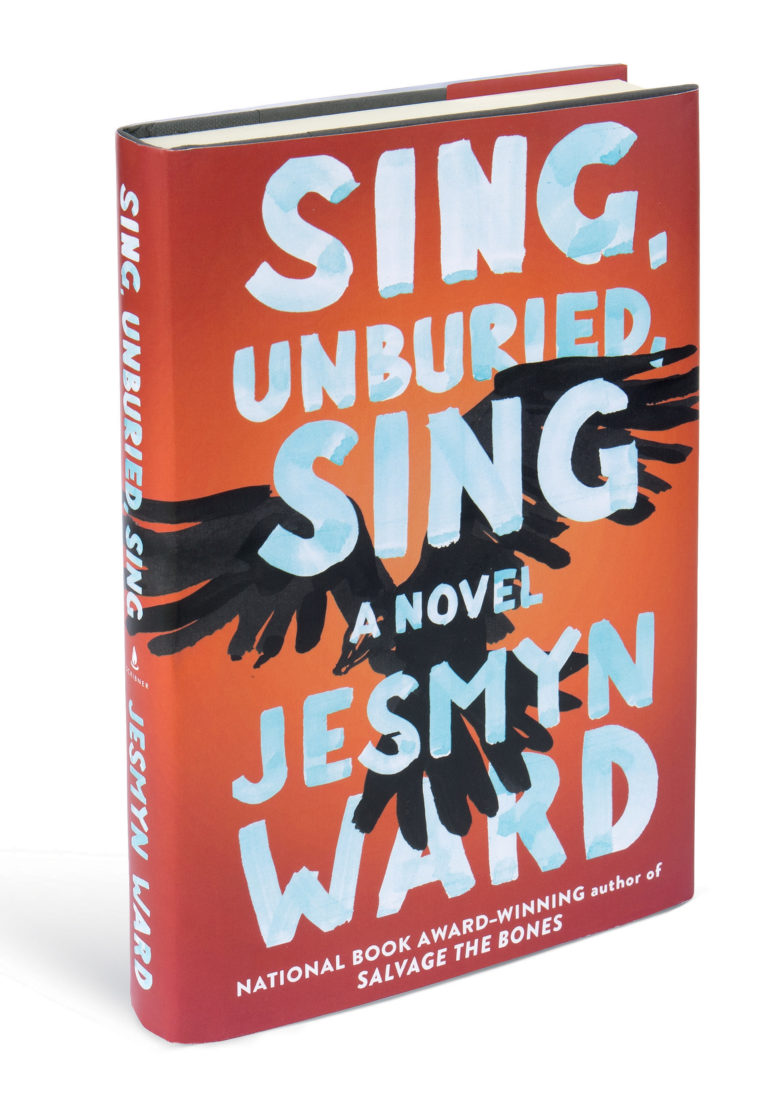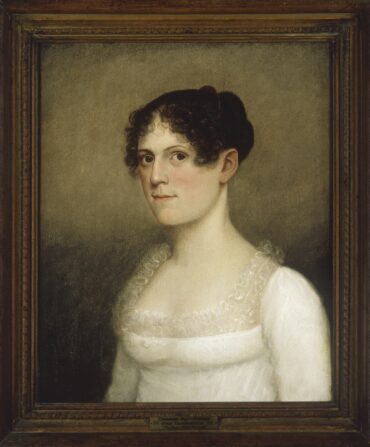No reason to delay this spell-bound verdict: With Sing, Unburied, Sing, her third novel, Jesmyn Ward becomes the standard-bearer for contemporary Southern fiction, its fullest, most forceful, most vibrant, and most electrifying voice. Her first novel, Where the Line Bleeds (2008), scattered hints of this potential; her second, Salvage the Bones (2011), about a young girl withstanding the torrents of both life and Hurricane Katrina, made a much longer leap, winning the National Book Award and drawing comparisons to the canon’s titans: Welty, O’Connor, and Faulkner, as well as Toni Morrison. But while Ward, born and raised in a small coastal community near Pass Christian, Mississippi, is operating within the contours of the Southern literary tradition—in the swampy lilt of her prose, in the scope of her concerns, in the way she entangles setting and character—she is also expanding it, heaving it forward, and revitalizing it in ways that no writer has done in more than a decade.
Sing, Unburied, Sing begins with the voice of a child: that of Jojo, short for Joseph, who kicks off his thirteenth birthday by helping his grandfather, Pop, slaughter a goat. We’re in a rural pocket of the Mississippi coast, where the great surfeit of water—coming down from the north in rivers, pooling in the bayous, rushing to the Gulf—“changes colors…like a little lizard. Sometimes stormy blue. Sometimes cool gray. In the early mornings, silver.” Looking at it, says Pop, you “know there’s a God.” Pop himself can inspire that same faith. Almost single-handedly he is raising Jojo and Kayla, Jojo’s three-year-old sister. Their mother, Leonie, who is black, fixates on her imprisoned white boyfriend—the children’s father—and on getting high. In the meantime, their grandmother, called Mam, lies cancer-wracked in bed, her impending death casting long shadows through the house and into the yard. It’s a forlorn milieu save for a current of tenderness that runs as deep as those rivers: Pop setting aside the goat’s tender liver for Mam, Jojo following “the trail of tender organ blood Pop has left in the dirt, a trail that signals love just as clearly as the bread crumbs Hansel spread in the wood.”
What opens as a family saga soon shifts into a road novel, with Leonie packing the children into the car to pick up their father from prison. Along for the ride comes Misty, Leonie’s coworker, whose hobbies include Lortab, OxyContin, coke, Ecstasy, and meth, and who arranges a pit stop at the home of a lawyer with similar enthusiasms. Stretching time like taffy, and spike-stripping the highway with bad luck and trouble, Ward suffuses the journey with mythic overtones not unlike the way Faulkner, in As I Lay Dying, layered epic reverb onto the Bundren family’s odyssey. Ward then segues into a ghost story harking back to Pop’s time as a Parchman inmate. The result is woven splendor, Ward stitching these stories together into a kind of narrative memory quilt, its edges frayed with ache and sorrow.
“Anything dead coming back to life hurts,” Toni Morrison wrote in Beloved. In Sing, Unburied, Sing, the hurting dead are literal—the ghosts seeking mercy, the ghosts seeking home—as well as figurative, with memories (and what Morrison called “rememories”) surfacing like coffins unearthed by a flood. “I washed my hands every day, Jojo,” Pop says, as one of these recollections shakes loose. “But that damn blood ain’t never come out.” This is Ward’s essential—and essentially Southern—focus: how the weight and stain of history affect every one of us. This being Mississippi, racial injustice supplies the bulk of that weight, yet Ward, with her characters, is allergic to simplification or moral tidiness; her mind zigs where others might zag, and her characters follow this same crooked and unpredictable path.
What remains constant, however, and what gives Sing, Unburied, Sing its warm and relentlessly beating heart, is the love between those characters, most of all Pop and Jojo. When, near the end, Jojo emerges from the ghost-thronged woods, whipping a stick to keep the dead at bay, he finds Pop, holding Kayla, the two of them “bright as the ghosts in
the dark.” “We was worried about you,” says Pop, who could be speaking for the breathless reader as well, testifying to the might of this thunderclap of a novel, this haunting new touchstone in Southern literature.









